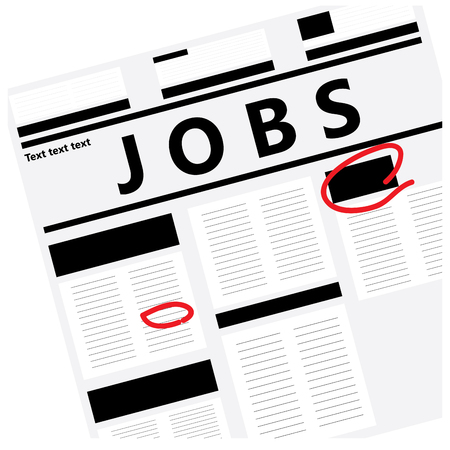Introduction: Astrology’s Enduring Influence on American Career Choices
Astrology, once relegated to the realm of daily horoscopes and quirky newspaper columns, now enjoys a renewed cultural relevance in the United States—particularly when it comes to career planning and professional self-discovery. In recent years, Americans from diverse backgrounds have increasingly turned to Western astrology not just for personal insights, but also as a tool for navigating their vocational journeys. This widespread interest is evident across social media platforms, workplace conversations, and even career coaching sessions where astrological language is often used to describe work preferences or team dynamics. At its core, Western astrology—centered around the Big Three signs (Sun, Moon, and Rising)—offers individuals frameworks for understanding their strengths, motivations, and interpersonal styles. As the lines between personal identity and professional ambition blur in contemporary culture, astrology has become more than entertainment; it serves as a lens through which many Americans make sense of their career paths, explore new opportunities, and seek alignment with their deeper values. This intersection of cosmic guidance and practical decision-making reflects both an enduring fascination with the stars and a uniquely American approach to career fulfillment.
2. Understanding the Big Three: Sun, Moon, and Rising Signs
When Americans explore career options through the lens of Western astrology, the “Big Three”—Sun, Moon, and Rising signs—are often considered the foundation for self-understanding. Each sign represents a different aspect of personality, influencing how individuals approach work and professional development. Knowing your Big Three can offer powerful insight into your strengths, motivations, and preferred work environments, making them key indicators when interpreting career inclinations.
The Significance of Each Sign
| Astrological Sign | Role in Personality | Relevance to Career Choices |
|---|---|---|
| Sun Sign | Core identity; what drives you; your ego and values | Indicates natural talents and ideal industries where you can shine |
| Moon Sign | Emotional needs; inner world; how you process feelings | Highlights work environments that feel emotionally supportive and fulfilling |
| Rising (Ascendant) Sign | Outward behavior; first impression; your approach to new situations | Sheds light on networking style, leadership potential, and adaptability in various roles |
Why the Big Three Matter in American Career Culture
The United States values individuality and self-expression in professional life. The Sun sign’s focus on personal goals aligns with the American emphasis on ambition and achievement. The Moon sign resonates with the growing trend toward workplace well-being and emotional intelligence. Meanwhile, the Rising sign is crucial in a society that prizes strong first impressions—think job interviews or networking events. Together, these signs provide a holistic profile that helps Americans align their career paths with both internal motivations and external expectations.

3. Astrology in the American Workforce: Trends and Attitudes
Within the dynamic landscape of the American workforce, astrology is no longer relegated to mere personal horoscopes or casual conversation—it has begun to weave itself into the fabric of workplace culture. Increasingly, professionals across diverse industries are turning to Western astrology not just for individual guidance but also as a tool for team development and organizational growth. This integration is evident in several key trends, from career coaching sessions that reference birth charts to team-building activities inspired by zodiac compatibility.
At the individual level, many Americans are consulting their natal charts before making pivotal career moves. Whether contemplating a job switch, negotiating a raise, or seeking clarity on long-term goals, astrology offers a language through which employees and entrepreneurs alike can interpret opportunities and challenges. For some, understanding their sun, moon, and rising signs provides insights into ideal work environments or leadership styles that resonate with their inherent strengths.
On a broader scale, companies—especially those in creative or progressive sectors—are experimenting with astrology-based workshops as part of professional development programs. Human resources departments may incorporate zodiac sign discussions into icebreakers or retreats, using them to foster open communication and empathy among colleagues. In fact, astrology-inspired assessments are occasionally used alongside established personality tests like Myers-Briggs or StrengthsFinder, tapping into employees curiosity about self-discovery while building rapport within teams.
This cultural shift is also reflected in the rise of astrologer-coaches who offer customized consultations for both individuals and groups. These practitioners blend traditional astrological wisdom with modern coaching techniques to address workplace concerns ranging from conflict resolution to career advancement strategies. As a result, astrology is being repositioned as a practical resource rather than a mystical pastime—a trend especially prominent among Millennials and Gen Z workers who value holistic approaches to professional fulfillment.
Despite its growing popularity, attitudes toward astrology in the American workplace remain varied. While some view it as an innovative means of enhancing self-awareness and team cohesion, others approach it with skepticism or regard it purely as entertainment. Nevertheless, the influence of Western astrology on professional decision-making continues to expand, reflecting broader societal openness to alternative frameworks for understanding human behavior and success.
4. Linking the Big Three to Professional Strengths and Challenges
The interplay between your Sun, Moon, and Rising signs—often referred to as the “Big Three” in Western astrology—offers a dynamic framework for understanding both your professional strengths and the challenges you might face on your career journey. For Americans navigating a competitive and ever-evolving job market, this astrological insight can be especially useful when making pivotal career decisions or seeking environments where you can truly thrive.
How the Big Three Interact in Career Contexts
Your Sun sign shapes your core identity and purpose, often aligning with your long-term career aspirations or what fundamentally motivates you at work. The Moon sign governs emotional needs and instinctive responses, influencing how you handle stress, teamwork, and workplace dynamics. The Rising sign, meanwhile, impacts first impressions and your outward style of engagement—essential for networking and leadership roles.
Common Sun-Moon-Rising Combinations: Strengths & Challenges
| Sun | Moon | Rising | Professional Strengths | Potential Challenges | Ideal Career Environment |
|---|---|---|---|---|---|
| Leo | Cancer | Virgo | Charismatic leadership, empathy, attention to detail | Sensitivity to criticism, perfectionism | Creative industries with supportive teams; education; event planning |
| Capricorn | Aquarius | Sagittarius | Strategic planning, innovation, adaptability | Distrust of authority, restlessness | Startups; consulting; technology; remote or flexible workplaces |
| Pisces | Libra | Scorpio | Diplomacy, creativity, emotional intelligence | Tendency to avoid conflict, over-investment in others’ needs | Counseling; arts; non-profit organizations; HR roles |
| Aries | Taurus | Gemini | Initiative, perseverance, strong communication skills | Impatience with routine tasks, inconsistency under pressure | Entrepreneurship; sales; marketing; fast-paced startups |
| Virgo | Sagittarius | Cancer | Analytical thinking, big-picture vision, nurturing leadership style | Anxiety over details vs. desire for freedom; mood swings at work | Research institutions; academia; healthcare; mentoring roles |
The Value of Self-Awareness in the American Workplace
This nuanced approach allows individuals to capitalize on their inherent talents while anticipating areas of growth. For example, someone with a Capricorn Sun (driven), Aquarius Moon (innovative), and Sagittarius Rising (adventurous) may excel in entrepreneurial ventures that reward both structure and creative problem-solving but may struggle in rigid corporate hierarchies. Recognizing these patterns can empower professionals across America to seek out environments where they are more likely to flourish—and avoid those that may stifle their natural abilities.
Navigating Team Dynamics and Leadership Roles
Understanding the Big Three also informs how people relate to colleagues and superiors. A Leo Sun with Cancer Moon will likely lead with heart and confidence but may require affirming feedback to maintain morale. By contrast, an Aries Sun with Gemini Rising may bring bold ideas and adaptability to group projects but need extra support when it comes to follow-through.
This practical application of astrology helps Americans not only select suitable careers but also develop strategies for personal growth—ensuring that professional choices are as fulfilling as they are successful.
5. Case Studies: Real-World American Perspectives
To better understand how the Big Three—Sun, Moon, and Rising signs—influence career paths in the United States, lets explore a few real-world stories and hypothetical scenarios reflecting the diversity of American experiences. These cases illustrate how astrology is woven into the fabric of professional decision-making across different walks of life.
The Ambitious Aries Sun on Wall Street
Jessica, a finance professional from New York, credits her Aries Sun for her relentless drive and competitive spirit. When considering which firm to join after college, she consulted her birth chart and noticed her Capricorn Rising provided her with discipline and a knack for long-term planning. Encouraged by these placements, she pursued investment banking—a field demanding both energy and endurance. Over time, Jessica says astrology helped her recognize when to push forward aggressively and when to exercise patience, leading to several promotions.
The Creative Pisces Moon in Silicon Valley
David, a software engineer from San Francisco, was torn between technical development and product design. His Pisces Moon indicated a strong creative intuition and emotional intelligence, while his Gemini Sun thrived on communication. With guidance from his astrologer, he pivoted toward user experience (UX) design—a path that balanced his need for innovation with empathy for end-users. Today, David is known for developing apps that prioritize accessibility and inclusivity, crediting his astrological insights for shaping a fulfilling tech career.
The Cancer Rising Teacher in the Midwest
Samantha grew up in Ohio with dreams of making a difference in her community. Her Cancer Rising sign highlighted a nurturing presence and natural leadership qualities. After learning about her chart at a college workshop, she decided against corporate America and instead embraced a career in education. By aligning her work environment with her astrological strengths—empathy, care, and communication—Samantha became a beloved high school teacher who feels deeply connected to her vocation.
Entrepreneurial Journeys Guided by Astrology
Not all Americans turn to astrology for traditional careers. Consider Marcus, an entrepreneur from Austin whose Leo Sun fueled his desire to stand out and lead his own company. His Taurus Moon emphasized stability and comfort, guiding him toward launching a sustainable home goods brand rather than chasing fast-moving tech trends. With every major business decision, Marcus revisits his chart to ensure alignment with both his ambition and need for security.
Diverse Outcomes: Astrology as One Piece of the Puzzle
These case studies show that while astrology is not the sole factor in American career choices, it acts as a supportive tool—offering perspective on individual strengths, challenges, and values. Whether providing clarity during pivotal transitions or confirming intuitions about professional fit, the Big Three continue to influence how Americans navigate their unique paths toward meaningful work.
6. Skepticism and Validation: Balancing Belief and Practicality
Despite the rising popularity of astrology in American pop culture, there remains a strong current of skepticism in mainstream U.S. society regarding its legitimacy, especially when it comes to career planning. Critics argue that astrological advice lacks empirical evidence and scientific foundation, often dismissing it as mere entertainment rather than a reliable decision-making tool. This skepticism is particularly pronounced in academic and corporate environments, where data-driven strategies and measurable outcomes are highly valued.
However, the landscape is evolving as more professionals seek holistic approaches to career development. Some career coaches and counselors have started to integrate astrological insights—especially those based on an individual’s Big Three (Sun, Moon, and Rising signs)—with traditional methods such as personality assessments, skills inventories, and labor market analysis. Rather than relying solely on astrology, these practitioners use it as one element among many to help clients reflect on their strengths, motivations, and professional aspirations.
Bridging the Gap Between Intuition and Analytics
For many Americans navigating complex job markets or facing major career transitions, blending intuition with practicality can provide valuable perspective. For example, while a Capricorn Sun might suggest leadership qualities and a drive for achievement, data from performance reviews or career assessments can offer tangible validation. This balanced approach allows individuals to explore both internal motivations (as illuminated by astrology) and external realities (as revealed by concrete metrics).
Astrology as a Complementary Tool
Rather than viewing astrology as a replacement for proven career planning tools, some advocates position it as a complementary resource. In this model, Western astrology helps clients frame their self-reflection and goal-setting within a larger narrative about identity and purpose. When combined with fact-based planning—such as researching job growth statistics or pursuing relevant certifications—it creates a more comprehensive strategy that respects both belief systems and practical needs.
Cultural Acceptance and Individual Choice
Ultimately, the acceptance of astrology’s role in professional choices varies widely across American society. Some embrace it wholeheartedly as part of their personal toolkit; others remain wary but open to experimentation. The key lies in maintaining a balance: respecting skepticism while acknowledging that for many people, astrology offers genuine insight when thoughtfully integrated with traditional career development resources.
7. Conclusion: Astrology as a Cultural and Personal Career Tool
Western astrology, especially through the lens of the Big Three—Sun, Moon, and Rising signs—continues to serve as both a cultural phenomenon and a practical guide for countless Americans making career decisions. While skeptics may dismiss astrology as mere entertainment, its presence in the American workplace culture is undeniable. Many professionals turn to their birth charts not only for self-reflection but also as a framework for understanding their unique strengths, emotional needs, and outward personas when considering new opportunities or challenges. The Big Three offer a language for discussing personal values and ambitions in a society that increasingly values individuality and self-actualization.
Astrology’s influence is visible across social media platforms, HR discussions about team dynamics, and even in career coaching sessions tailored to Millennials and Gen Z employees. Its integration into American work life reflects broader cultural trends that prioritize self-exploration and holistic approaches to professional development. By connecting ancient wisdom with contemporary aspirations, Western astrology provides a bridge between tradition and innovation—a tool for navigating not just what jobs to pursue, but how to find fulfillment within them.
Ultimately, whether one views astrology as fate or simply a creative lens for introspection, its role in guiding career choices is both practical and symbolic. For many Americans, consulting the stars is less about rigid destiny and more about finding meaning and confidence in the journey toward professional satisfaction. As workplaces evolve and individuals seek greater alignment between personal values and career paths, astrology—anchored by the enduring relevance of the Big Three—remains an influential companion on the road to success.

